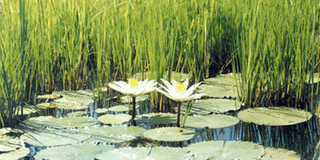We must conserve our wetlands

As Uganda moves towards the oil production phase, the East African Crude Oil pipeline (EACOP), is one of the key components that will transport crude oil to Tanga port in Tanzania for exportation. However, this pipeline comes at a time when the entire world is talking about sustainable development and climate change, which is related to the way we use our natural resources for development.
This pipeline in Uganda was designed to pass through more than 200 wetlands, which does not augur well for Ugandans who rely on wetlands for water supply for human consumption and they provides cattle grazing ground. Many of the pipeline affected districts are located in the cattle corridor, which is water-stressed.
The proposed technique for water and wetland crossings (open trench) has the potential for causing negative impacts, particularly in wetlands yet this seems to be ignored. Even the EACOP Environmental and Social Impact Assessment (ESIA) report does not state clear why the proposed technology is acceptable. This way of digging nearly between two and three metres in the wetlands with a right of way of nearly 30 metres, means some wetlands will be destroyed.
Inevitability, flora and fauna will be destroyed. And in case of any spillage, the effects will be severe since wetlands constitute systems that end up in open water bodies, many of which are transboundary. Therefore, the developer needs to explain in detail the way in which the crossings of the major rivers and associated wetlands will be done.
A particular element for attention is how trenches having a water depth of two to three metres will be crossed
Consider alternatives, including the different construction techniques such as open-trench/auger drilling/digging/ drilling a tunnel. And if open trenches remain the preferred option, they should consider filling of the trenches instead of the proposed natural filling of the trenches in turbid streams as the material may easily erode.
The developer should also specify where and when potential interference between the water supply for the project and that for the local communities could take place, including its duration and who will be affected.
The mitigation and compensation measures for disturbing watering points for animals during construction are also not sufficient. Impacts could be important for individual farmers. The same holds for loss of natural resources.
They should also tell what provisions have been put in place to cater for activities directly linked to some of these water sources, like brick-making, sand mining, vegetable-growing and communal resources, including grazing.
The President has on many occasions spoken of the need to conserve wetlands amid increased pressure, especially from investors. Therefore, the EACOP project should desist from engaging in acts that destroy nature, including wetlands.
Asadhu Ssebyoto,
[email protected]




